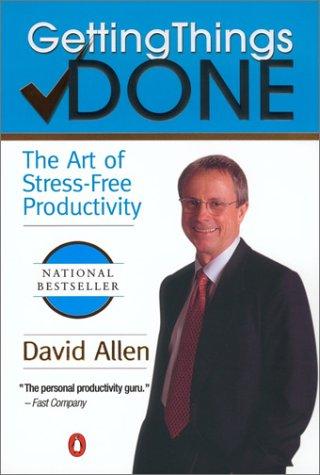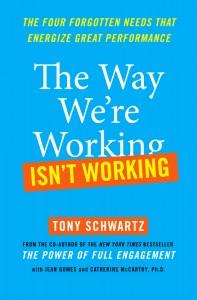As many of you know, I have a keen interest in time management and productivity. I love to load my schedule up and work hard to accomplish as much a possible during the day. If I fall into bed exhausted from a meaningful day's work, I feel satisfied. At that point, sleep feels like a reward and the next day is something I look forward to tackling.
But,there is a natural struggle with approaching life like this. It is only satisfying if I'm accomplishing things that are meaningful and tied to a purpose that I consider important. As life "happens," I'm constantly pulled towards the things that are urgent and contain less meaning. Thus, the need for time management becomes even more apparent.
 Dave and I have both written WorkPuzzle articles in the past that reference David Allen's time management theories. Allen has written several best-selling books on this topic, and he is considered by many to be the foremost expert on this topic in recent years.
Dave and I have both written WorkPuzzle articles in the past that reference David Allen's time management theories. Allen has written several best-selling books on this topic, and he is considered by many to be the foremost expert on this topic in recent years.
Last November, I wrote a series of WorkPuzzle articles (1,2,3,4) highlighting the work of Tony Schwarz. Schwartz has also written several best-selling books (one of which my kids call "the blue book" because I reference it a lot in our family discussions), but approaches time management and productivity from a completely different perspective than Allen.
As I have studied these two approaches over the last year, I thought I was being original by trying to integrate the best of these authors' theories. As it turns outs, I wasn't being original at all. There are a bunch of people trying to reconcile these theories…So many, in fact, that Harvard Business Review (HBR) featured an article this month on the topic of how these theories compare and contrast. 
In today's WorkPuzzle, I'll lay out some background and general ideas. Next time, I'll summarize some of the speifics that I find particularly helpful.
First, how each person defines what they do. In their own words:
David Allen: "I help people and orgaizations produce more with less input. I teach a set of best practices and a methodology that produce a greater sense of concentration and control."
Tony Schwartz: "I teach individuals and organizations how to manage energy more skillfully in order to get more done in less time, more sustainably. That requires a new way of working–one that balances periods of high focus with intermittent renewal."
What are the general principles that each author teaches?
Schwartz: "Thereʼs a fundamental misunderstanding about how human beings operate at their best. Most of us mistakenly assume weʼre meant to run like computers—at high speeds, continuously, for long periods of time, running multiple programs simultaneously. Itʼs just not true.
Human beings are designed to be rhythmic. The heart pulses; muscles contract and relax. Weʼre at our best when weʼre moving rhythmically between spending energy and renewing it. We need to recognize the insight of athletes, who manage their work-rest ratios. We encourage people to work intensely for 90 minutes and then take a break to recover. We teach them to eat small, energy-rich meals every few hours, rather than three big meals a day. We believe napping drives productivity, although that remains a tough sell in most companies.
Still, the reality is that if a person works continuously all through the day, sheʼll produce less than a person of equal talent who works very intensely for short periods and then recovers before working intensely again."
Allen: "I believe it's an issue of choosing the right work. Peter Drucker said that the toughest job for knowledge workers is defining the work. A century ago, 80% of the world made and moved things. You worked as long as you could, and then you slept, and then you got up and worked again. You didnʼt have to triage or make executive decisions. Itʼs harder to be productive today because the work has become much more complex."
Hopefully, this will peak your interest for more detail next time. By the way, if you haven't picked up a copy of HBR in a while, the May issue would be a good one to buy. There are a bunch of helpful articles this month…
Editor's Note: This article was written by Ben Hess. Ben is the Founding Partner and Managing Director of Tidemark, Inc. and a regular contributor to WorkPuzzle. Comments or questions are welcome. If you're an email subscriber, reply to this WorkPuzzle email. If you read the blog directly from the web, you can click the "comments" link below.

